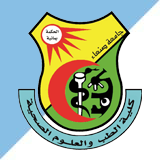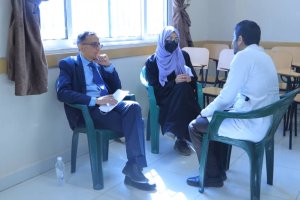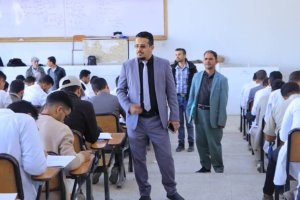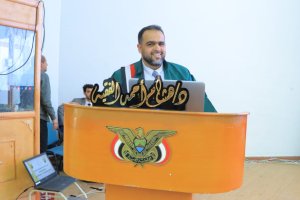Workshop on the Current Situation of Physical Disabilities and the Classification of Graduates of the Bachelor’s Degree in Prosthetics and Orthotics at Sana’a University
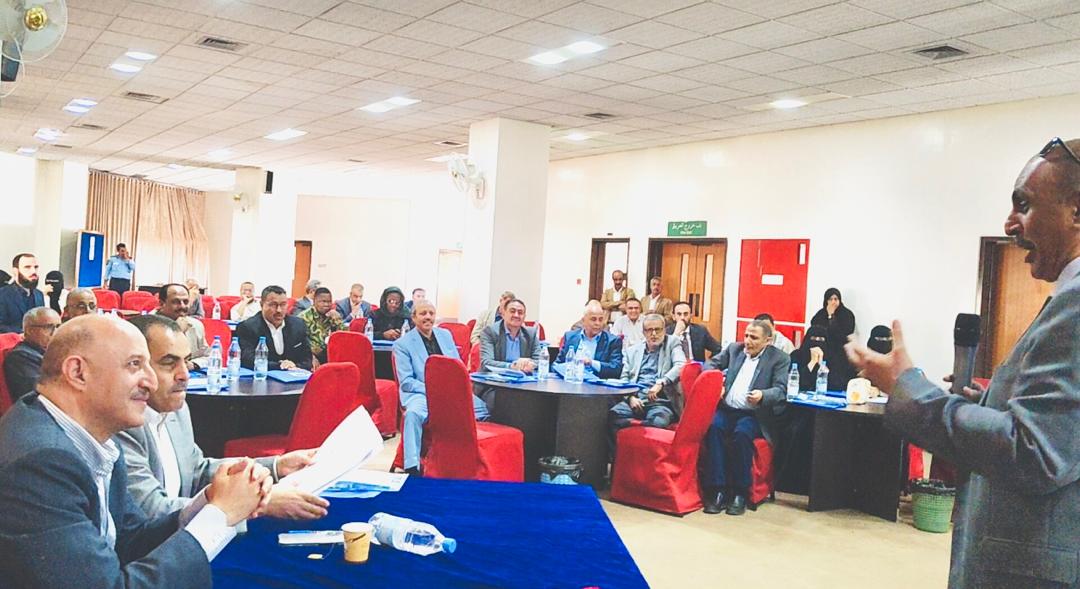
A specialized workshop was held at the Faculty of Medicine and Health Sciences at Sana’a University to classify graduates of the Bachelor’s degree in Prosthetics and Orthotics, attended by a number of prominent figures in the health and education sectors.
The workshop was inaugurated by Prof. Dr. Khaled Al-Khamesy, Dean of the Faculty, who welcomed the attendees and presented the current situation in Yemen, pointing to the increasing physical disabilities and the lack of qualified expertise and personnel. He praised the decision to establish the program and emphasized the importance of the Prosthetics and Orthotics program at Sana’a University and its output classification. He highlighted that the program has received international accreditation from the International Society for Prosthetics and Orthotics (ISPO). He also noted the commitment of supporters, including the *ICRC*, to establish a comprehensive center at the faculty, which will begin operations starting this month.
The workshop was attended by:
– Minister of Health, Population, and Environment, Prof. Dr. Ali Abdul Karim Shiban
– President of Sana’a University, Prof. Dr. Al-Qasim Muhammad Abbas
– Chairman of the Medical Council Prof. Dr. Mujahid Mesar
– Undersecretary of the Ministry of Higher EducationProf. Dr. Ghaleb Al-Qans
– Undersecretary of the Civil Service Ministry
– Representative from the Ministry of Foreign Affairs
– Representatives from the International Committee of the Red Cross supporting the program since its inception
– Representatives from the Handi-Cap Organization supporting the workshop
Following this, a discussion was opened with representatives from the Medical Council and official bodies regarding the registration of Bachelor’s degree graduates in the field of Prosthetics and Orthotics. The requirements and procedures related to registration were explored, and an agreement was reached on the appropriate classification according to the international standards set by *ISPO* that accredited the program.
Subsequently, several important lectures related to prosthetics and their development were delivered by: Yasser Al-Imad Program Coordinator, Nizar Akhtar Specialist, and Nasser from Handi-Cap, along with a number of specialist graduates in the field.
In conclusion, the Minister of Health praised the quality of prosthetic and physical therapy centers in Yemen for alleviating suffering and providing high-quality medical services, as well as the efficiency of the workers. He also commended the support provided by the supporting organizations and confirmed the ministry’s support for the graduates of the faculty.
The workshop concluded with a set of important recommendations, including:
1. Developing Curricula:
Updating curricula to include intermediate rehabilitation programs and enhancing practical training.
2. Establishing Strategic Partnerships:
Strengthening collaboration between universities, the Medical Council, and health institutions to exchange knowledge and experiences.
3. Continuous Program Evaluation:
Conducting periodic evaluations of the program and organizing awareness campaigns about the importance of the prosthetics program.
4. Developing a Unified Classification System:
Establishing a clear classification system for jobs in this field to facilitate employment and professional development.
5. Seeking Funding:
Supporting training and research programs, providing scholarships for outstanding students, and enhancing communication between graduates.
This workshop is the first of its kind and represents an important step towards improving the level of education and training in the field of prosthetics and orthotics, contributing to enhancing the quality of health services provided to patients in Yemen.






x
